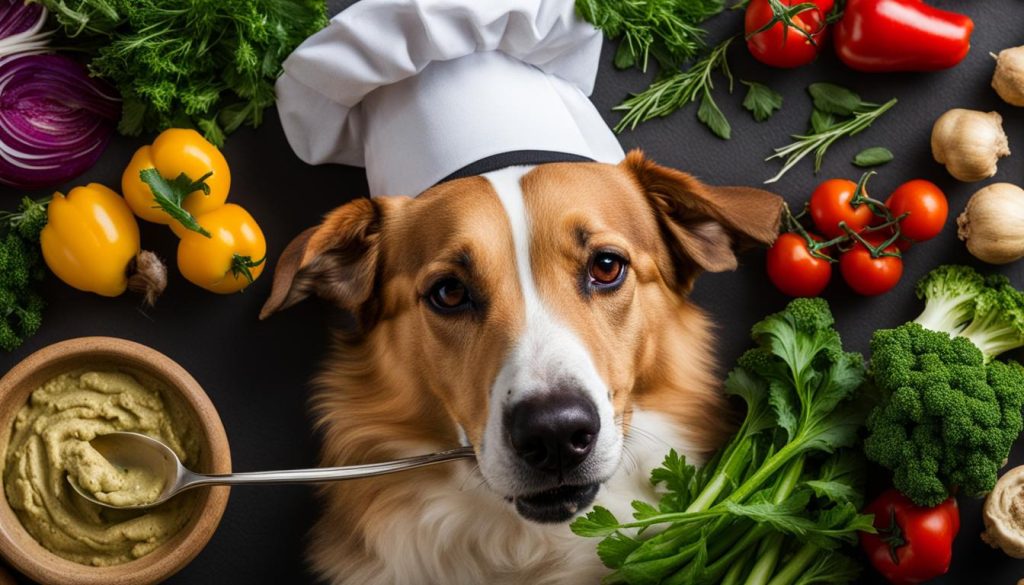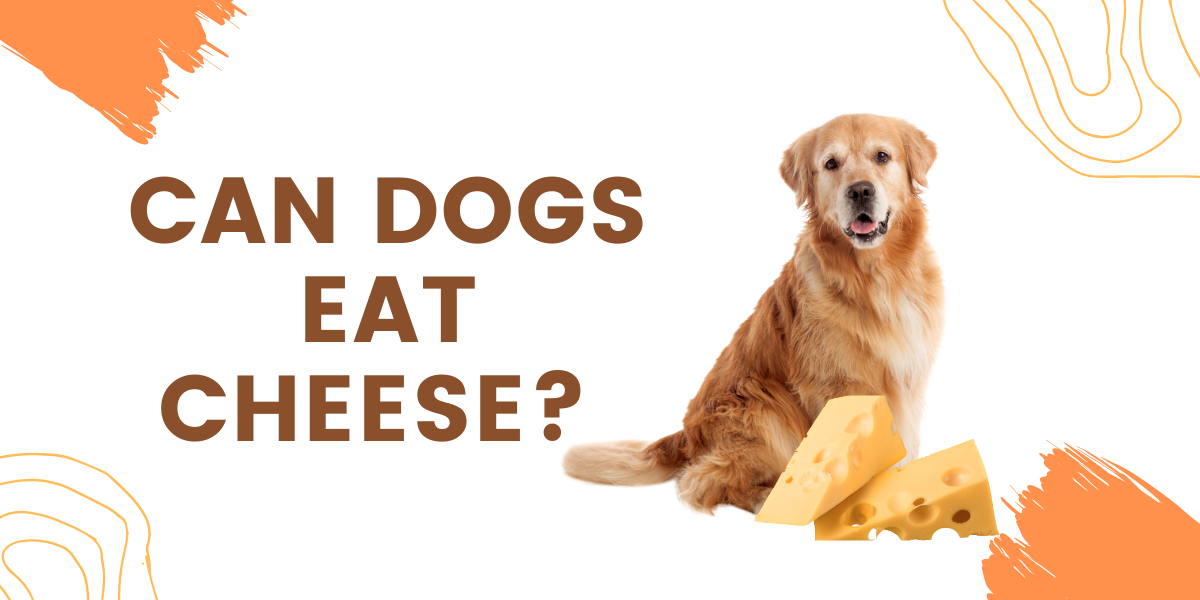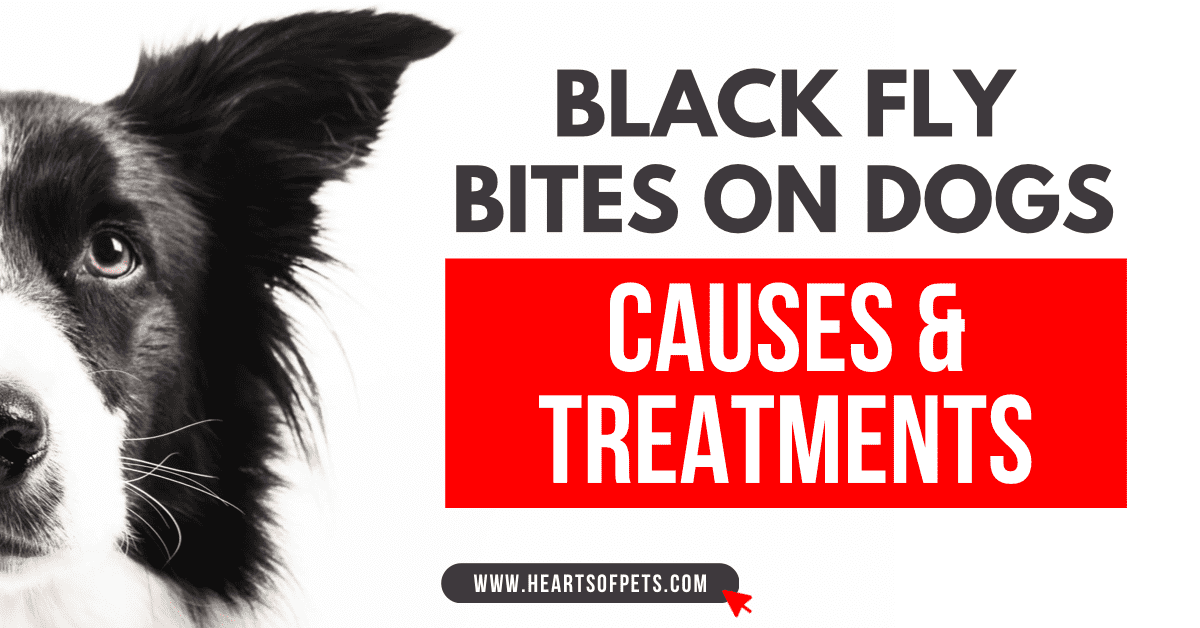As an aficionado of all things edibles, I must confess, my savory spread of choice often features the smooth, rich flavors of hummus. Whether I’m pairing it with crisp vegetables or fluffy pita bread, there’s no denying the delectable appeal of this Middle Eastern staple. However, while I indulge, I can’t help but ponder a pressing question that concerns the well-being of my furry companion: Can dogs eat hummus?
The answer isn’t as straightforward as one might hope. While the health benefits of hummus for humans are celebrated, when it comes to hummus and dogs’ digestive system, caution is mandatory. Although chickpeas—the heart of hummus—aren’t toxic and boast an impressive profile of fiber, protein, and minerals, the typical hummus recipe includes ingredients that can be more foe than friend to our canines. It is in examining the whole picture that we find guidelines for safe snacking emerge for our four-legged friends.
Can Dogs Eat Hummus? Yes, but it is not a good idea and should be avoided.
- Chickpeas are non-toxic to dogs and offer beneficial nutrients.
- Typical hummus ingredients like garlic and salt can be harmful to dogs.
- Garlic, often found in hummus, is toxic and can lead to anemia in dogs.
- Citric acid in lemon juice, another hummus component, may upset a dog’s stomach.
- For the safety and health of our pets, it’s best to avoid sharing hummus with dogs.
- Owners should consider dog-safe treat alternatives free from the risky ingredients in hummus.
Understanding the Effects of Hummus on Dogs’ Digestive Health
As someone who’s always concerned about what I feed my furry friend, I’ve taken a close look at the ingredients of hummus to understand its impact on dogs’ digestive systems. While I love to indulge in the creamy texture and rich flavors, I’ve learned that hummus includes tahini, oils, and often heavy doses of garlic—ingredients that can be particularly troublesome for my dog. Notably, garlic could cause more than just bad breath; it might lead to gastrointestinal issues or even toxicity in dogs.
When I think about the precautions when feeding hummus to dogs, the potential risks of dietary upset and dehydration caused by lemon juice also come to mind. Although a tiny lick of hummus might not immediately harm a dog, the complications for smaller breeds or those with sensitive digestive tracts can be acute. It strikes me as a risk that’s not worth taking. As a responsible pet owner, my priority is to avoid any food that might endanger my dog’s health, no matter how much they beg for a taste.
Considering the downsides, finding hummus alternatives for dogs seems like the wisest course of action. There are countless suitable and safer snacks out there that won’t upset my dog’s stomach or cause longer-term health issues. I’m always on the lookout for treats that can offer nutritional benefits without the risky ingredients found in hummus. After all, my dog’s health and happiness are my primary concerns.
Understanding Hummus Ingredients and Their Impact on Dogs
As a pet owner who enjoys whipping up various dishes, I’m often curious about the potential effects of certain human foods on my furry friend. Specifically, with hummus being a common presence in my kitchen, it’s important to dig into its ingredients and recognize which are safe or harmful for dogs. So, let’s get into the details of creating dog-friendly hummus recipes.
Hummus Ingredients Safe for Dogs
Starting with the basics, chickpeas are the heart of hummus and are fortunately safe for dogs in their simplest form. When crafting dog-friendly hummus recipes, I ensure these legumes are plain and fully cooked before letting my dog have a taste. In the same vein, a drizzle of olive oil for dogs can make the hummus smoother, yet it’s vital to remember moderation is key to prevent any gastrointestinal upset or unwanted weight gain.

Why Garlic and Onion Are Dangerous
However, a common seasoning duo in hummus — garlic and onion — are a definitive no-go for canines. These ingredients can cause red blood cell damage and are known for their toxicity in dogs. The outcomes of garlic and onion poisoning are certainly alarming, so these ingredients are excluded from all my dog-friendly culinary endeavors.
Lemon Juice and Dogs’ Digestive System
Lastly, while lemon juice provides a zest that enhances hummus for humans, its high citric acid content can be troubling for dogs. I actively avoid adding lemon juice to any recipe intended for my dog because I aim to keep his digestive system free from any sort of distress or discomfort. For peace of mind, my mantra is simple when it comes to preparing pet-safe snacks: when in doubt, leave it out.
Varieties of Hummus: Which Are Off-Limits?
As a hummus enthusiast, I’ve come across countless variations of this popular dip. But as a pet owner, it’s important to recognize which flavors are a no-go zone for our canine friends. With a multitude of options on the market, it’s crucial to stay informed about the hummus varieties that could pose a risk to your dog’s health.
Garlic and Onion Hummus
It goes without saying that garlic and onion hummus toxicity is a reality that dog owners should be wary of. The potent levels of these ingredients can cause serious repercussions that are not worth the risk. Understandably, you might ponder, “Can dogs eat hummus?” if these elements are removed. Though garlic and onion variations are definitely out of the question, we’ll discuss safer alternatives shortly.
Chocolate Hummus and Dogs
Another tantalizing variety for us humans but a definitive hazard for dogs is chocolate hummus. The threat lies in the theobromine content of chocolate, which dogs cannot process. Though it might be tempting to let Fido taste this sweet spin on a classic, chocolate’s toxicity to dogs is an unyielding barrier for their safety.
Red Pepper Hummus: Spicy vs. Safe
Then there’s the zesty kick of red pepper hummus – a delight for spice-lovers but a potential nightmare for dogs. The health risks of spicy foods for dogs are anything but trivial. Despite its appeal, this flavor melds fats with spices, garlic, and lemon juice, amplifying the potential for digestive turmoil in our unwitting pooches.
As we navigate the complexities of what to share from our plates with our four-legged pals, remembering these limitations on hummus is essential for their well-being.
Health Risks Associated with Feeding Dogs Hummus
As I delve deeper into understanding what treats are suitable for our furry friends, I’ve turned a skeptical eye towards hummus – a snack I’ve often enjoyed but one that may not provide the health benefits for dogs that we find in our human diets. It’s important to dissect why some ingredients in hummus could turn a seemingly harmless treat into a fountain of health risks. For instance, although chickpeas themselves are packed with nutrients, the garlic and lemon juice often found in hummus can be incredibly harmful, leading to toxicity in our dogs. Indeed, garlic is a known culprit, not just causing gastrointestinal turmoil but also potentially resulting in anemia.

Moreover, the high oil content in hummus, often heart-healthy for us, presents significant health risks of fatty foods to dogs, including weight gain and even pancreatitis. The latter is a condition that could have long-term health implications for our canine companions. Additionally, while chickpea allergies in dogs are rare, they’re still possible, and could lead to unexpected reactions.
So, when I think about the potential health challenges – ranging from stomach upsets to more serious conditions – it becomes evident that seeking safer, dog-friendly snacking alternatives is the responsible route for pet owners. This approach safeguards our dogs’ health while still allowing them to enjoy snack time.
Serving Size and Safety: How Much Hummus Can Dogs Have?
When it comes to pampering our furry companions with human treats, moderation and ingredient safety always come first. You may be wondering about the serving size of hummus for dogs, especially if you’re looking to share a bit of your snack. Chickpeas, the core ingredient in hummus, are generally safe for dogs, but what about the overall mixture?
The truth is, hummus often contains garlic and lemon juice—ingredients that can be harmful to dogs. Even a small quantity of these can lead to health concerns like sodium poisoning or even anemia over time. So, what does this mean for those moments when those pleading eyes are looking up at you from below the dining table?
Can dogs eat hummus in moderation?
I’m inclined to err on the side of caution by suggesting that it’s best to avoid giving hummus to dogs altogether. While larger dogs might not fall ill from a tiny bit of hummus, the potential risks associated with its ingredients aren’t worth the gamble. Deciding to forego hummus as a treat for your dog ensures you avoid the slim chance of any immediate or cumulative health issues.
Hold off on granting your dog even a modest taste of your hummus snack. Their health is paramount, and thankfully, there are numerous dog-friendly alternatives that are safe and will satisfy your dog’s appetite. When you’re considering a canine diet, think about snacks that contribute positively to their health without any shadow of dietary doubt.
Hummus Alternatives: Healthy Dog Snack Suggestions
When I ponder on alternatives to hummus for my canine companion, I start considering the multitude of snacks that could be both safe and nutritious for them. Given the fact that various elements in traditional hummus might pose health risks to dogs, it’s essential to explore dog-friendly options that promote their well-being without comprising on the enjoyment factor.
Chickpeas: A Raw Superfood for Dogs?
One of the most praised legumes in terms of chickpeas health benefits is, indeed, the humble chickpea. Seen by many as a superfood, these little nuggets are a rich source of protein, fiber, and essential vitamins and minerals. When serving them to your dog, it’s imperative they’re cooked and unsalted to guarantee your furry friend reaps only the benefits, not the unwanted detriments of added seasonings or oils.
Dog-Friendly Hummus Recipes
Creating dog-friendly hummus recipes is an unexpectedly simple task. It is all about going back to basics: a blend of pureed chickpeas, a drop of olive oil, and a bit of water to achieve the perfect consistency. These ingredients axe out the harmful garlic and lemon juice typically found in your store-bought hummus, giving rise to a canine-appropriate version that’s both safe and satisfying.
Other Safe Vegetables and Fruits for Dogs
Of course, alternatives don’t end at chickpeas. I often turn to a colorful array of other vegetables and fruits that are delightful and harmless to dogs. Slices of cucumber, carrot sticks, and bell pepper bits are all fantastic hummus substitutes. They provide a satisfying crunch and a mix of vitamins and antioxidants that can contribute to a healthy, balanced diet for our four-legged pals.
Conclusion
In wrapping up this comprehensive look into the question many pet owners ask—can dogs eat hummus—it becomes clear that what serves as a nutritious snack for humans isn’t always safe for our canine companions. Despite the health benefits of chickpeas, the additional ingredients commonly found in hummus, such as garlic and lemon juice, pose serious threats to dogs, necessitating precautions when feeding hummus to dogs. With the welfare of our furry friends at heart, I advocate for exploring dog-friendly hummus recipes that exclude the harmful elements.
For those of us who love to treat our pets, there’s the comfort in knowing that there are many suitable alternatives that allow us to share our snack time joy without compromising their health. My conversations with vets and dog nutritionists consistently point towards natural, unseasoned chickpeas, as well as other safe veggies and fruits as optimal treats. They sustain the nutritional fun without the risks associated with regular hummus.
To safeguard our dogs’ well-being, I cannot stress enough the importance of informed snacking. Always be vigilant and adopt precautions when feeding hummus to dogs, or better yet, avoid it altogether. It’s always a good practice to consult your veterinarian to obtain tailored dietary advice that aligns with your pet’s specific health needs and preferences. By doing so, we ensure our furry family members thrive and delight in every meal, worry-free.
FAQ
Can dogs eat hummus?
It is not recommended to feed dogs hummus. The ingredients commonly found in hummus, such as garlic, lemon juice, and high amounts of salt, can be harmful to dogs’ digestive systems. Chickpeas alone are safe for dogs in moderation, but hummus often contains additives that are risky.
Are there any health benefits of hummus for dogs?
While hummus itself is not advisable for dogs due to its potentially harmful ingredients, the base ingredient, chickpeas, can provide health benefits such as fiber, protein, and minerals when served plain and in moderation.
How can hummus affect a dog’s digestive system?
Certain ingredients in hummus, like garlic and lemon juice, can cause gastrointestinal irritation and discomfort in dogs. In some cases, it may lead to more serious health issues such as dehydration or poisoning.
Are there any hummus ingredients that are safe for dogs?
Plain chickpeas and small amounts of olive oil are generally safe for dogs if given in moderation. However, traditional hummus recipes contain additional ingredients that are not safe for dogs.
Why are garlic and onion dangerous for dogs?
Garlic and onion can cause toxicosis in dogs, leading to gastrointestinal distress, red blood cell damage, and anemia. These foods are to be completely avoided in a dog’s diet.
What is the impact of lemon juice on a dog’s digestive system?
Lemon juice contains citric acid which can upset a dog’s digestive system. It can lead to stomach pain and discomfort and should be avoided.
Which varieties of hummus are off-limits for dogs?
All commercial varieties of hummus should be considered off-limits for dogs, especially those containing garlic, onions, chocolate, or any spicy ingredients like red pepper. These ingredients are toxic or can cause significant digestive upset in dogs.
What health risks are associated with feeding dogs hummus?
Feeding dogs hummus can lead to health issues such as gastrointestinal illness, dehydration, poisoning from garlic and lemon juice, weight gain, and pancreatitis due to the high fat content.
How much hummus can dogs have safely?
Ideally, dogs should not have hummus because it contains ingredients that are harmful to them. If any variety is to be considered, ensure it is free from garlic, onion, lemon juice, and excess salt or oil, and only given in very small amounts if at all.
Can dogs eat chickpeas as an alternative to hummus?
Yes, dogs can eat plain, cooked chickpeas in moderation. These are a good source of fiber and protein. Always ensure that the chickpeas are free from salt and oils before offering them to your dog.
What are some dog-friendly hummus recipes?
A dog-friendly hummus recipe might include mashed plain chickpeas and a bit of olive oil. It’s critical to avoid adding any garlic, onion, salt, and lemon juice which are typical in traditional hummus recipes.
What other safe vegetables and fruits can dogs eat instead of hummus?
Dogs can safely eat a variety of vegetables and fruits such as carrots, cucumbers, apples (without seeds), and bell peppers. These should be served plain, without any dips or seasoning.






